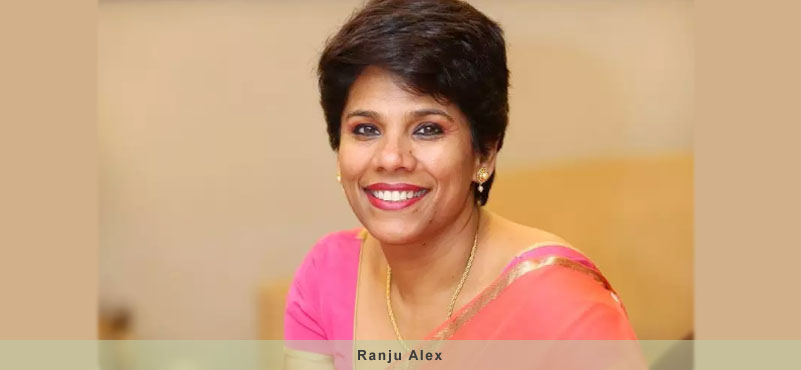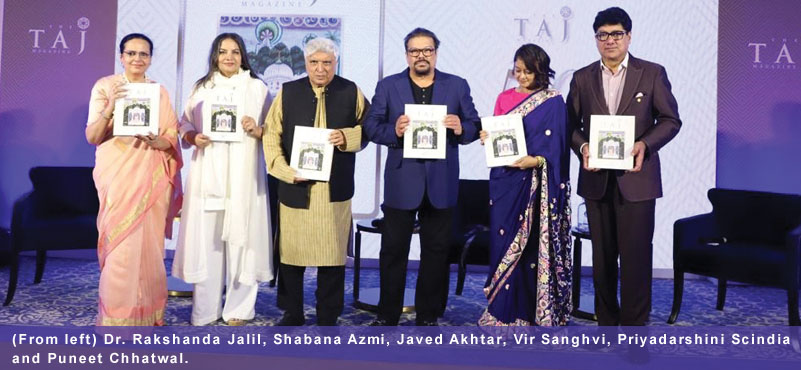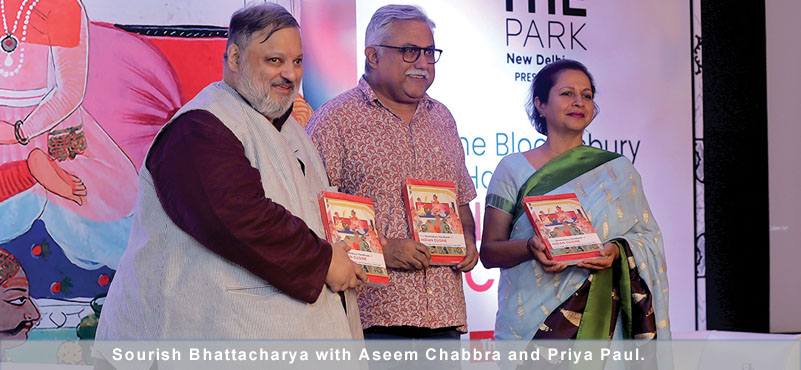Speaking at the third Global Hospitality Conclave, Ritesh Agarwal shared his vision of transforming nation’s online space by bringing on board all available utility spaces for enhanced optimization and profit.

FOUNDER & CEO , OYO ROOMS
Terming the online space a vibrant, organic community that had immense power to create opinions and influence businesses, he said that those days where a single bad guest experience could be whisked away were long gone. Reasoning that even a single bad consumer experience made more difference to companies dealing with large volumes, he shared that OYO Rooms had booked a million rooms last month – clocking upwards of 92 percent positive reviews. “It looks formidable. But, in reality, going by the figure, there are a large number of people who did not have a satisfactory experience. The challenge will be to push these numbers to closer to a hundred mark,” he explained. Analysing future trends in the realm of online space, he believed that the real-estate was under-represented in the online space, and under-utilized nationally. “There are a number of cafes, airport lounges and eateries in expensive hotels that are functioning at low levels of efficiency and occupancy. Some of them as low as thirty percent. Why cannot we get them online to make it financially rewarding for all parties involved,” he asked. He went as far as to say that the company that figured out a way to better utilize the available infrastructure creating more value at a better pricing would run away with the pie from them.
Noting that innovation remained vital in order to nurture a thriving online consumer space, he advocated innovation and the ability to think ‘beyond the box’. Asking the larger community to refrain from the tendency of straying into emulation, he said “one must try to think organic and innovate. Real problems need indigenous solutions.” Illustrating his argument, he mentioned that his company grew by targeting all unbranded hotels, service apartments and B&B’s which was a unique prospect when rolled out, at least in India. Stating that it had encouraged hotels to improve their facilities, in turn creating better travel experience, he told us that hotels had increased income with more demand of F&B and other services.
“The concept of online space was simply not there in India for the unbranded private hotels and lodges. There is a huge segment of travellers who would like to have a reasonably priced accommodation. There have certain expectations like a clean room and washroom, besides basic amenities in place,” he said.
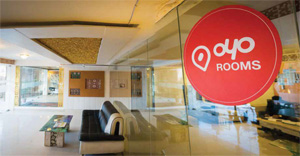 Ritesh believed that the problem with online hotel aggregators lied in calculating the predictability of service quality meted out to the consumer, and not the discoverability of property or guests, besides enhancing skills of the staff handling consumers. “How do you know if the rooms are prim and proper, and every detail is taken care of? Nine out of ten times, it may work well for us. But, there are instances where it doesn’t. And, that is where the use of IT to iron out glitches come in,” he batted for extensive application of IT in running operations.
Ritesh believed that the problem with online hotel aggregators lied in calculating the predictability of service quality meted out to the consumer, and not the discoverability of property or guests, besides enhancing skills of the staff handling consumers. “How do you know if the rooms are prim and proper, and every detail is taken care of? Nine out of ten times, it may work well for us. But, there are instances where it doesn’t. And, that is where the use of IT to iron out glitches come in,” he batted for extensive application of IT in running operations.
He said that age of internet, hand-held devices and online communities, and creation of e-data at an unprecedented rate had modified the consumer behaviour. “Today’s consumer wants to have a personalised service. As a service provider, you must be able to pre-empt his needs and deliver him tailor-made solutions and services. Unless, you do not streamline and use the sea of data to your advantage, you can not deliver the expected results,” he said. It is the ability to pre-empt ever-evolving consumer needs is what keeps some ahead of the rest, he felt.
He noted that there were instances where the hotel staff was not up to the mark to meet consumer expectations which could impact the brand’s standing. “It remains a challenge to ensure similar skill levels to create a similar experience as a brand. That is something we are trying to work on and deal with.”
Instil a sense of pride in staff to ensure standardization of service
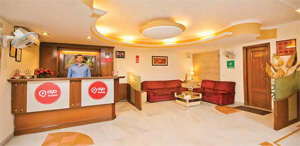 On the question of creating a standardization in guest experience, he said that there were two aspects to ensuring them. “When we think about the quality of experience with our surveyors, one is, of course, the basic – like a bed, TV, Wi-Fi, and cleanliness. Second, and a more vital part, is service,” he said. He shared that he found the former a more solvable conundrum. “For instance, we have partnered with Airtel to give free Wi-Fi to all our hotels with 4G connections. To ensure cleanliness, we have OYO cleanliness vans to assist our hotels,” Ritesh said. He noted that the standardization of service to deliver a guest experience and cement brand value were a common problem for all hotels, and not just e-commerce aggregators. “In general, we do know that our manpower is not averse to working hard, but most of the times, they are simply not skilled enough. If they are, they are so overburdened by the QSR, or the F&B industry that they simply find it difficult to give good service,” he explained.
On the question of creating a standardization in guest experience, he said that there were two aspects to ensuring them. “When we think about the quality of experience with our surveyors, one is, of course, the basic – like a bed, TV, Wi-Fi, and cleanliness. Second, and a more vital part, is service,” he said. He shared that he found the former a more solvable conundrum. “For instance, we have partnered with Airtel to give free Wi-Fi to all our hotels with 4G connections. To ensure cleanliness, we have OYO cleanliness vans to assist our hotels,” Ritesh said. He noted that the standardization of service to deliver a guest experience and cement brand value were a common problem for all hotels, and not just e-commerce aggregators. “In general, we do know that our manpower is not averse to working hard, but most of the times, they are simply not skilled enough. If they are, they are so overburdened by the QSR, or the F&B industry that they simply find it difficult to give good service,” he explained.
“We have done everything from recognition, compensation, to increasing remuneration, and so forth. We are also setting up an institute for training our staff. I guess the problem will solve when people who work for the hospitality industry start taking pride in their work, especially in the budget segment,” he opined. Adding that staff in a non-branded hotel made comprehensively lesser money than any five star hotel staff, he said “they just do not feel proud of working for a non-branded hotel. Hopefully, our brand programs and referral programs will enable that, but it is a challenge that gives me sleepless nights,” he said.
Delving further on his future engagements, he mentioned that they had been fiddling with the thought of breaking the price-barrier for a very long time. “We have run some experiments and will continue to do so, but I firmly believe that it could work for those 400 million travellers that get into buses and trains, and there are so few of us,” he said, referring to the Indian hospitality industry.
He told us that when he looked at a standalone or a large brand, he did not see a large brand integration value that OYO could add. “I, although, see a big distribution power I can add. So, if a brand wants to partner us in distribution, we would love to explore that,” said Ritesh. Adding that they promised predictability, affordability and availability to their customers, he noted that “Our board which hangs outside any hotel is an assurance that your experience will not be bad. Whereas, when a consumer goes to The Leela or The Taj, he already expects predictability. They do need an OYO board, up front, to create that sense of assurance.”
Whoever uses infra better than us will disrupt OYO; brands and distributors fast integrating
“A growing trend which I feel very strongly about is the amazing integration of brand and distribution. I consider myself more a part of brand than the distribution fraternity,” he said. Illustrating how the integration was visible in the modus operandi of new companies, he said “If you see the new generation of companies that are coming up, brands and distributors have nothing much in different, because there are brands of hospitality and they are the distributors of inventories as OTAs.” Placing his wager on more Indian hospitality brands venturing on the same path in the years to come, he noted “What my strong belief is that the next generation, very similar to let us say UBER which is a distributor and a service provider, hospitality companies will be, both, brands as well as distributors.” The Marriott-Starwood deal illustrated that shift, he said.
Explaining his argument, he said that technology itself was becoming a commodity, and data the only real asset. And, this commodity could be used by anyone. “Every company is innovating in their own way. I believe is, in the long-term, people who are service providers and delivering the last-mile experience to the consumer will be the biggest distributors, because consumers are getting smarter day by day,” added Ritesh. He attributed OYO’s success to passionately following what he believed in. “Our journey from three hotels to over 4,500 hotels has been nothing short of amazing. The major reasons of our growth can be attributed to being very passionate about what we are trying to do,” he shared. “Secondly, we managed to build a team which shared a similar vision and commitment to the idea. Our long-term ambition, though, is very different from all these numbers,” he claimed. He, further, said that the real-estate globally had been very inefficiently utilized; it was not only with India, but global phenomena and we want to change that, he said.
Giving an insight to what he believed could disrupt OYO’s march towards a lion’s share of online bookings, he predicted that “The company that should disturb OYO’s aggressive expansion will be the one which figures out a way to better use the available infrastructure than we did.” Adding that if they could put to use available infra most efficiently, besides providing the experience to the consumer, not marginally, but at an exponentially better price than OYO, might disrupt them. “Our biggest weakness is the reverse integration. A company has a cycle. There is growth with an idea, but you may stagnate and die if you do not keep improvising,” explained Ritesh. “We want to ensure that we keep rejuvenating ourselves with fresh ideas and newer networks all the time,” he said.


